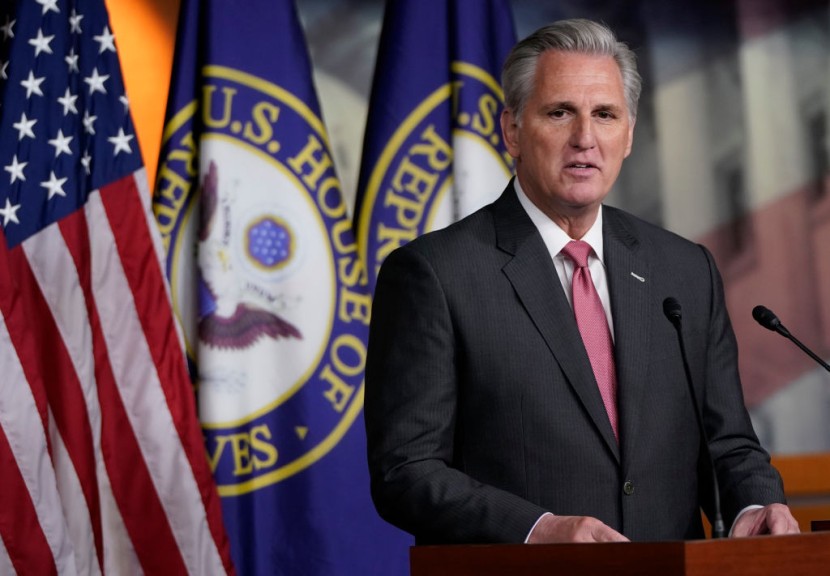
Rep. Kevin McCarthy failed to win the speakership on the first three votes as 20 GOP members rejected the party leader's bid and instead supported Jim Jordan of Ohio.
The situation comes after the 118th Congress convened on Tuesday that saw the election for House speaker devolve into a pitched floor fight. Mutiny among hard-right lawmakers resulted in the political chaos that has not been seen in the chamber for the last century. The House adjourned until noon Wednesday after three failed votes to produce a winner.
Kevin McCarthy's Bid For House Speaker
McCarthy's failure to secure his role as House speaker turned what was expected to be a triumphant moment for the new GOP House majority into a political crisis. It has exposed the fissures within the party just as it assumed control. Moreover, since the chamber cannot swear in members or perform actual work until a speaker is chosen, the country's legislative process was at a standstill.
The California lawmaker needed 218 votes with all members present and participating to secure the position of House speaker. However, he only received 203 in the first two rounds of balloting, then lost a supporter in the third round, finishing off with 202 votes, as per the New York Times.
On the other hand, the Democratic Party was united behind their leader, Rep. Hakeem Jeffries of New York, who earned the most votes, 212, on all three ballots. However, he will almost certainly not win because his party controls only 212 seats, which is short of the needed 218 votes.
Prior to Tuesday, the House had not failed to elect a speaker on the first roll call vote since 1923 when the election stretched for nine ballots. Based on House precedent, members will continue to take successive votes until someone, McCarthy or otherwise, secures the majority needed to prevail.
The situation comes as the Republican's House majority is a narrow one and GOP candidates far underperformed expectations during the midterms. This was despite former United States President Donald Trump promising a red wave of Republican winners.
Read Also : Republican Adam Kinzinger Expresses Fear if Donald Trump Escapes Charges Over Capitol Riot
Opposition From Far-Right Members
According to CNN, voters were found to reject Republican extremism but the GOP has, despite this, moved toward conspiracy. Furthermore, Trump's allies, including Rep. Lauren Boebert, Marjorie Taylor Greene, Andy Biggs, Matt Gaetz, and Jim Jordan, were re-elected. Greene, who was furious, was among those on the far right of the GOP to vote for McCarthy.
Currently, there are no signs to suggest how many rounds of balloting it would take for members to decide on a speaker. If no consensus is reached, the process could continue for several more days.
While previous speakers faced challenges coming into a new Congress, they managed to rally their caucus by the time the official vote arrived. However, McCarthy had a difficult time convincing the far-right members of his own party.
McCarthy's failure to secure the needed votes stem from opposition to his speakership on ideological and personal grounds. Biggs leads this group of Republicans and has placed himself forward as an alternative for GOP members to vote for, BBC reported.
Related Article : US Congress 2023: Rep. Kevin McCarthy House Speakership Bid in Trouble
© 2026 HNGN, All rights reserved. Do not reproduce without permission.








